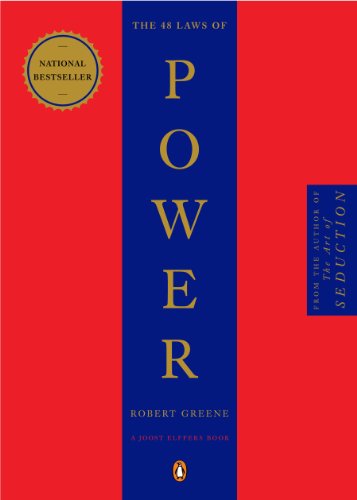

This article is an excerpt from the Shortform summary of "The 48 Laws of Power" by Robert Greene. Shortform has the world's best summaries of books you should be reading.
Like this article? Sign up for a free trial here .
Overview of Law #9: Win Through Your Actions, Never Through Argument
Arguing your point rarely changes anyone’s mind — even when you appear to win, you lose because you stir up resentment. A far better way of getting others to agree with you is to demonstrate your point without saying anything. People believe what they can see. Win through your actions, never through argument.
Principles of Law 9
What does it mean to win through your actions, never through argument? When you argue with someone, even if they seem to agree with you, you can never be certain they really do.
They may politely assent, while secretly resenting you. Or your choice of words may have offended them. In any case, people distrust words because they know you’ll say anything, including offering bogus sources and statistics, to bolster your case.
Winning through your actions, never through argument is more effective and powerful. Your target can see the evidence in front of her — there are no words to be misinterpreted. British architect Sir Christopher Wren knew the power of demonstration over argument. When he built a town hall for the city of Westminster, the mayor worried that the second floor would fall on his office below. Wren knew this was impossible, but instead of arguing he installed two more columns and the mayor was satisfied. Years later, workers on a high scaffold discovered that the columns weren’t touching the ceiling.
When you win through your actions, never through argument, you don’t make your opponents defensive, and they’re more open to seeing what you want them to see, and thus to agreeing with you.
Putting Law 9 to Work
Here’s an example of how to apply Law 9 of the 48 Laws of Power. Michelangelo understood the power of winning through your actions, never through argument. When he was carving the famous statue of David, the mayor of Florence took a look and told him the nose was too big. Michelangelo knew it only looked that way from the mayor’s perspective, but he didn’t argue. Instead, he gestured for the mayor to follow him up the scaffolding, where the artist pretended to be changing the nose. After a few minutes, he stood back and the mayor pronounced it perfect. But Michelangelo hadn’t changed it — he just changed the mayor’s vantage point, from which it looked fine.
Michelangelo knew that arguing with the mayor, who was a patron and a superior, would offend him and jeopardize future commissions. He won his point without arguing and without offending.
Exceptions to Law 9
Are there any exceptions to 48 Laws of Power Law 9: Win through your actions, never through argument? There’s one time when arguing is the right strategy — when you’ve been caught in a lie and need to distract others from your deception. In that case, argue strenuously and with conviction. The more emotional you get, the more likely people are to believe you.
The aristocratic con artist Count Victor Lustig practiced this technique. He scammed many people by selling a box that he claimed was a money-making machine. Usually, when it didn’t work, people were too embarrassed to report they’d been swindled.
But one victim, a sheriff, confronted Lustig. Lustig argued vehemently, with a lot of baffling terminology, that the sheriff must have damaged the box or used it incorrectly. He offered to give the sheriff back his money, plus written instructions, and promised to visit the sheriff and examine the box. Lustig handed over a hundred hundred-dollar bills and the sheriff departed satisfied. Later, however, he was arrested and convicted for passing counterfeit notes. Lustig won the argument and never heard from the sheriff again.
But in general, follow 48 Laws of Power Law 9: Win through your actions, never through argument.
———End of Preview———

Like what you just read? Read the rest of the world's best summary of "The 48 Laws of Power" at Shortform . Learn the book's critical concepts in 20 minutes or less .
Here's what you'll find in our full The 48 Laws of Power summary :
- Why you should never outshine your boss
- How to appear like a friend but behave like a spy
- The 6 rules you absolutely must not violate, if you want to be successful







I really needed to read this rule